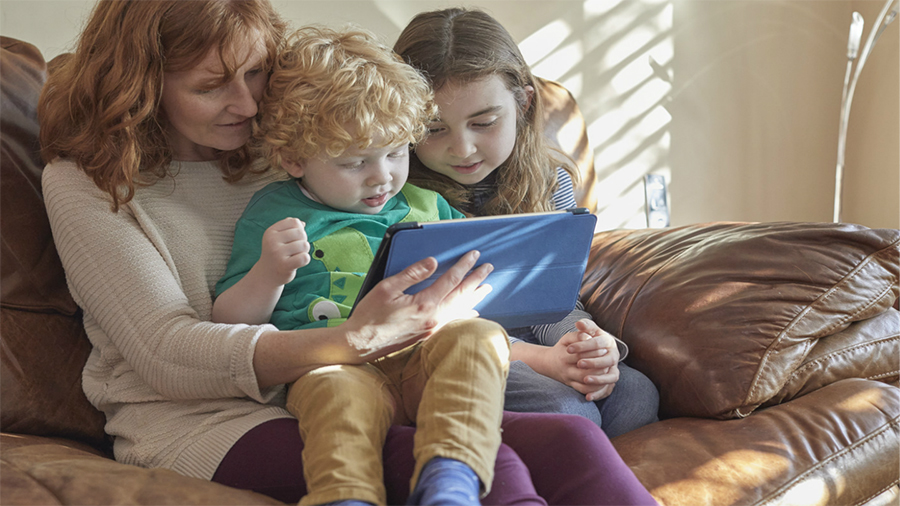
Online Safety at Western
Helpful Advice and Tips for Your Family
Working Together as a Family
Tiktok
Please remember, public accounts (that anyone can look at) may include inappropriate content for your child.
IMPORTANT: Even if your child has set their Instagram profile to private, your child’s bio (at the top of their profile) can still be seen by everyone. Check they’ve not included any personal information in their photo and bio info (e.g. they should not be wearing their school uniform in their photo). A parents guide to Instagram can be found here https://www.net-aware.org.uk/networks/instagram/
Please remember, public accounts (that anyone can look at) may include inappropriate content for your child.
As of May 2018, Whatsapp's minimum age for signing up was changed from 13 to 16 years old. Children are only able to communicate with people who are in their contacts, While this may feel a safe way to communicate, any member of the group can add their own contacts meaning your child maybe communicating with strangers. In group chats it is difficult for a child to control or filter the content which can be inappropriate. In these cases it is best for your child to remove themselves from the group and delete it.
Snapchat
Snap Map (sharing their location) The map lets users see where their friends are if a friend has chosen to share their location at any given time. Location sharing with friends via the map is optional and is off by default, we recommend that this remains the default setting.
Streaks count how many consecutive days two people have been sending Snaps to each other. A streak is shown by a little picture of a flame and a number (the number of days the streaks has gone on for) next to a contact’s name. There can be pressure to respond on a daily basis to maintain their streaks and it can cause issues with people logging into other’s account to carry on streaks for friends especially if someone is going to be without internet access. This means that users are sharing their passwords and giving others full access to their account. A parents guide to snapchat can be found here https://www.net-aware.org.uk/networks/snapchat/
Fortnite
Fortnite contains voice and text chat, which can contain inappropriate and explicit language. You can turn the voice chat off but not the text chat. As always, show your child how to report players for any inappropriate behaviour more information can be found here: https://www.saferinternet.org.uk/blog/parents-guide-fortnite-battle-royale
Users should make sure that they know who they are taking to and that they can talk to you or another trusted adult if they have any concerns.
In app purchases: All users can purchase V-Bucks directly through the game so make sure you don’t store your credit card details and your child understands that they must check with you before making any purchases.
We always recommend playing the game with your child so you can see what they are playing and monitor the sort of chat that they are listening/contributing to.
Youtube
Did you know YouTube has a restricted mode? Does your child use YouTube? Have you set up the restricted mode?
Restricted Mode (available on the website and app) allows the user to restrict access to mature or objectionable content.
YouTube Kids may be a safer option for your family as it provides additional settings such as a content filter by age as well as providing a more contained environment.
A parent’s guide to YouTube Restricted Mode, which illustrates how it works and what you should be aware of is available here https://www.childnet.com/blog/a-parents-guide-to-youtube-restricted-mode
Remember that this mode may not be 100% effective, so you will need to regularly check on what your child is watching. It also a good idea to turn off auto play so they can not just move from video to video.
Starting a conversation with young people about the risks associated with online challenges.
The internet and our online world is constantly changing, new issues, challenges and online platforms are developing all the time and it is impossible to keep up to date with them all. Having those open and honest conversations with your child will help you to understand what their online world looks like. Ask your children about what they’re seeing online and be prepared to have some difficult conversations around topics such as self-harm, suicide and negative online influences, these topics are difficult to discuss but will be part of your child's online world if they are using social media platforms. The NSPCC has some great advice that can help you if you need to talk about difficult topics.
It’s important that your children feel that they are able to come and talk to you about any issues that they may be having online. Safer Internet has some helpful conversations starters for you to use.
Peer Pressure
Childline have created an information page for help and support for anyone who feels like they are affected by peer pressure online. https://www.childline.org.uk/info-advice/





















